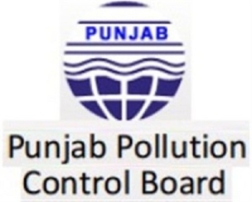Patiala, November 15, 2020 : Punjab Pollution Control Board regularly conducts Deepawali festival special monitoring across the state to know the impact of bursting of fire crackers . This year also State pollution control board conducted the Ambient Air Quality Monitoring at five locations for 24 days (i.e. 7 days prior to Deepawali & 17 days after Deepawali) from 07.11.2020 to 30.11.2020. The 6 Continuous Ambient Air Monitoring stations installed by PPCB in State of Punjab provides the real time data. Noise monitoring is being carried out on pre-deepawali day (i.e.09.11.2020) & Deepawali day (i.e 14.11.2020). Deepawali Special monitoring in State of Punjab is as follows:
Ambient Air Quality Monitoring (Manual) Continuously in the following locations for the different parameters PM10, SO2, NO2 ( Metals in PM10 :- Pb, Ni As, Al, Ba, Fe) 1. Patiala 2. Mandi Gobindgarh 3. Ludhiana 4. Jalandhar 5. Amritsar The comparative real time data during Diwali 2019 and Diwali 2020 of Continuous Ambient Air Quality Monitoring Stations established at Amritsar, Jalandhar, Ludhiana, Khanna, Mandi Gobindgarh, Patiala cities as per table below City 2019 2020 Data From 7.00 AM 27 Oct – 6.00 AM 28 Oct 2019 Data from 7.00 AM 14 Nov- 6.00 AM 15 Nov – 2020 PM 2.5 PM 10 AQI PM 2.5 PM 10 AQI Min Max Min Max Min Max Min Max Amritsar 43 500 94 500 276 310 500 191 500 386 Jalandhar 87 500 90 500 282 90 500 130 500 328 Khanna 80 445 135 410 255 175 341 128 322 281 Ludhiana 83 500 100 500 304 294 500 146 500 376 Mandi Gobindgarh 173 462 113 408 311 96 425 118 423 262 Patiala 157 500 143 500 328 210 500 149 500 334 Average 104 485 113 470 293 196 461 144 458 328 As per data, the Minimum PM10 during previous year was 90 micrograms per cubic meter(ug/m3), and PM2.5 was 43 ug/m3, whereas this year, these are 118 ug/m3 and 90 ug/m3. AQI for the Punjab during in 2019 was 293 (Poor) and for 2020 was 328 (Very Poor). However AQI value of Mandi Gobindgarh declined from 311 in 2019 to 262 in 2020 due to Ban on bursting of Fire Crackers The high value of AQI Diwali-2020 could be due to difference in the atmospheric conditions (Low temperature i.e decrease of 19% ( 23oC in 2019 to 19oC in 2020) prevailing during the season resulting in reduced dispersion of the pollutants. Punjab Pollution Control Board will compile the Monitoring data and the report will be uploaded on PPCB website.








